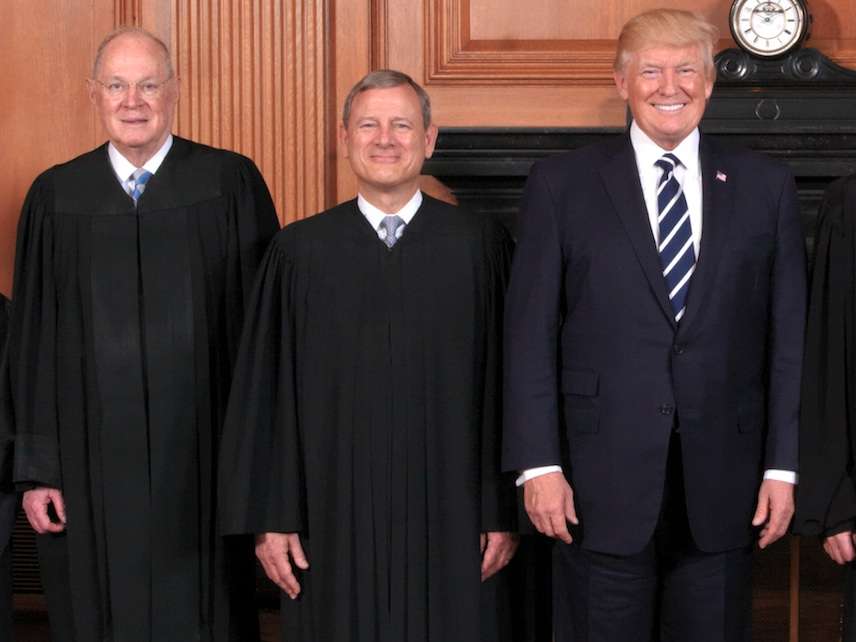In Warrantless Cellphone Search Case, It's the Trump Administration vs. the 4th Amendment
The Supreme Court will arguments in Carpenter v. U.S. in the coming term.

The U.S. Supreme Court will hear oral arguments sometime in its coming term in one of the most significant Fourth Amendment cases in years.
At issue in Carpenter v. United States is the question of whether the FBI violated the Fourth Amendment when it obtained, without a search warrant, the cellphone records of suspected armed robber Timothy Carpenter. With those records, federal officials identified the cell towers that handled the suspect's calls and then proceeded to trace back his whereabouts during the time periods in which his alleged crimes were committed. That information was later used against Carpenter in court.
The Trump administration strongly urged the Supreme Court not to hear this case. Why? Because "a person has no Fourth Amendment interest in records created by a communications-service provider in the ordinary course of business that pertain to the individual's transactions with the service provider," the administration told the Court in its brief in opposition to the petition for certiorari.
What is more, the administration argued, "the acquisition of a business's records does not constitute a Fourth Amendment 'search' of an individual customer even when the records reflect information pertaining to that customer."
This cramped view of the Fourth Amendment is extremely dangerous to the privacy rights of all Americans in the age of the smart phone. As the Supreme Court recognized in the 2014 case of Riley v. California, in which the Court unanimously told the police to "get a warrant" before searching cellphones incident to arrest, "modern cell phones are not just another technological convenience. With all they contain and all they may reveal, they hold for many Americans 'the privacies of life.' The fact that technology now allows an individual to carry such information in his hand does not make the information any less worthy of the protection for which the Founders fought."
Consider the sort of information a typical cellphone user shares with a cellphone company. It is much more than just numbers dialed or texted; it includes email addresses of correspondents, the URLs of websites visited, and, of course, the physical locations from which the device itself was accessed. Shouldn't the Fourth Amendment offer some genuine protection for such highly personal private information?
As a back-up argument, the Trump administration claims that even if the Fourth Amendment is held to apply to the cell-site information at issue in this case, the government's actions against Carpenter should still be ruled constitutional on the grounds that they are a "reasonable" exception to the normal requirements of the Fourth Amendment.
"Society has a strong interest in both promptly apprehending criminals and exonerating innocent suspects as early as possible during an investigation," the Trump administration argued. According to the government, in other words, it takes too long and causes too much hassle for law enforcement officials to bother getting a search warrant in cases like this.
But that view turns the Fourth Amendment on its head. One of the main purposes of the Fourth Amendment—as well as other guarantees in the Bill of Rights—is to restrain overzealous government agents before they run roughshod over the rights of individuals. The Trump administration, by contrast, wants to loosen such constitutional restrictions on the cops.
It is a heartening sign that the Supreme Court agreed to hear this important case over the objections of the Trump administration. Hopefully the Court will ultimately reject the administration's disfiguring interpretations and issue a decision that gives the Fourth Amendment its due.


Show Comments (21)